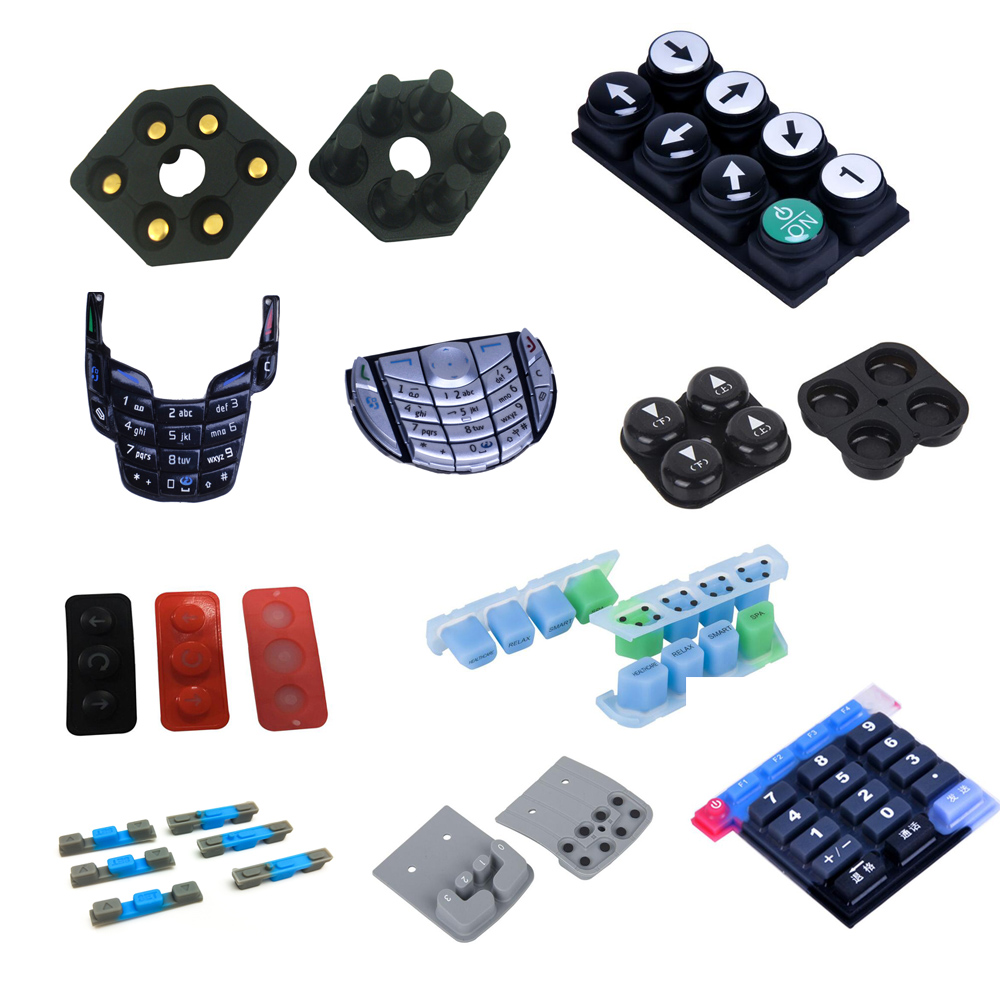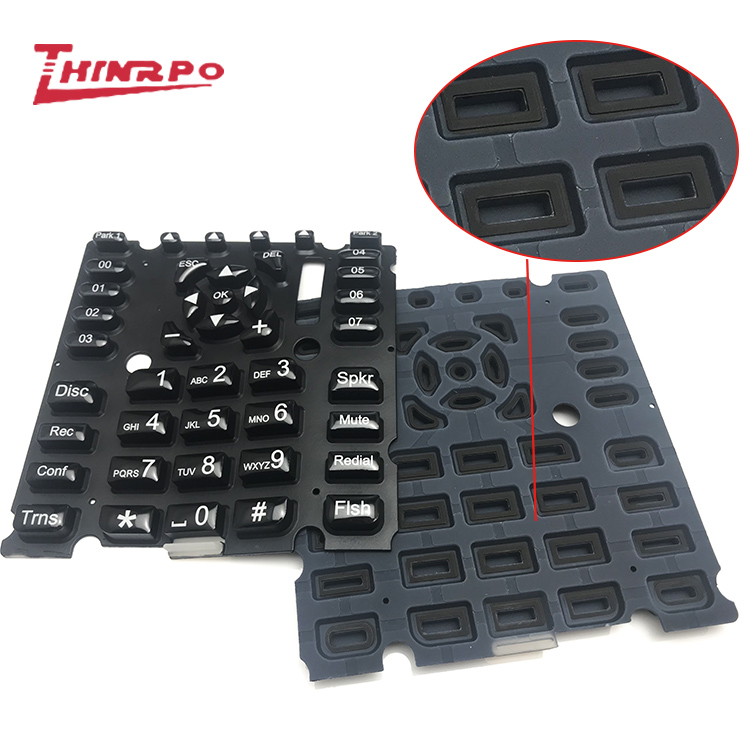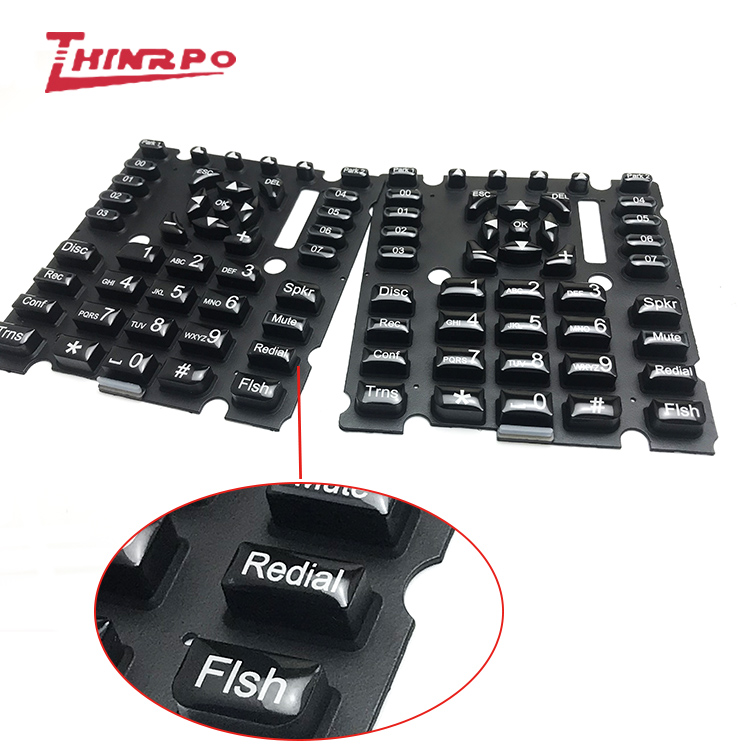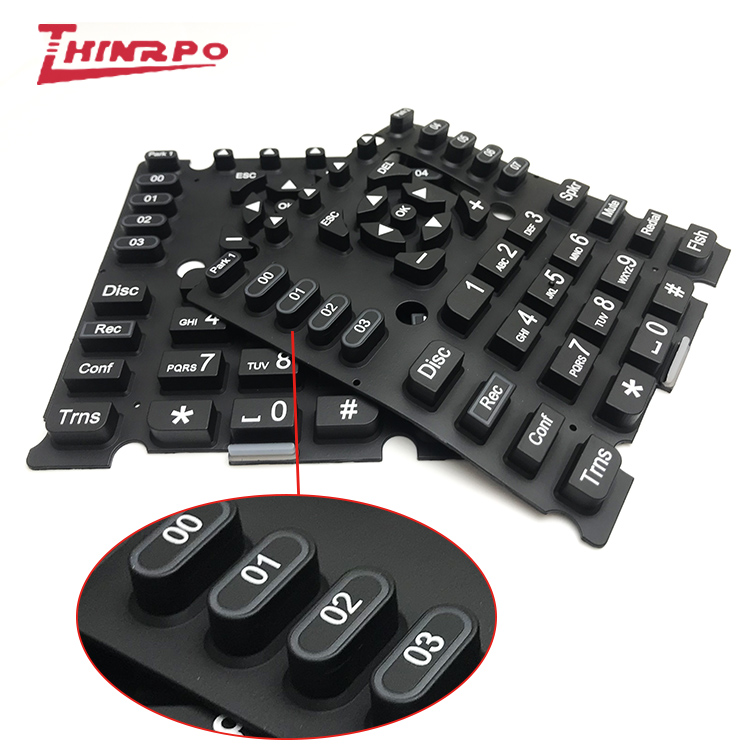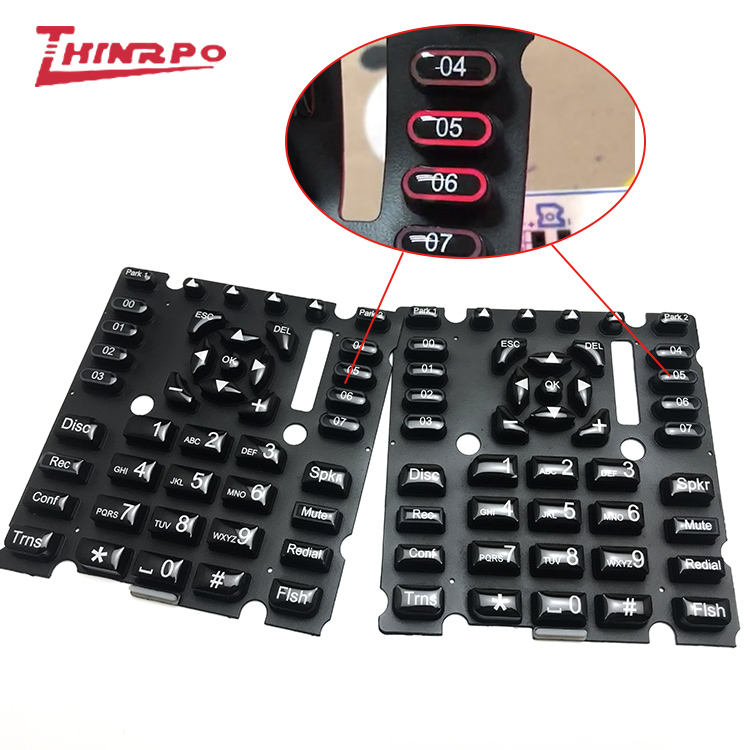How to customized silicone keypad
Customizing silicone keypads offers tailored solutions for various electronic applications. Here's a concise overview of the customization process:
Define Requirements: Specify dimensions, layout, and features like backlighting or symbols.
Material Selection: Choose silicone based on hardness and environmental resistance.
Design: Use CAD software to create a detailed layout, considering key spacing and functionality.
Prototyping: Develop prototypes for testing design and functionality.
Molding: Select the appropriate method (e.g., compression or injection molding) for production.
Color and Finish: Decide on color options and surface textures for aesthetics.
Electronics Integration: Integrate switches or LEDs seamlessly if needed.
Quality Control: Implement rigorous checks to ensure consistency and reliability.
Testing: Validate performance through various tests, including actuation and environmental tests.
Feedback and Improvement: Gather user feedback for iterative enhancements.
Following these steps ensures customized silicone keypads that meet exact specifications, enhancing user experience and product functionality.
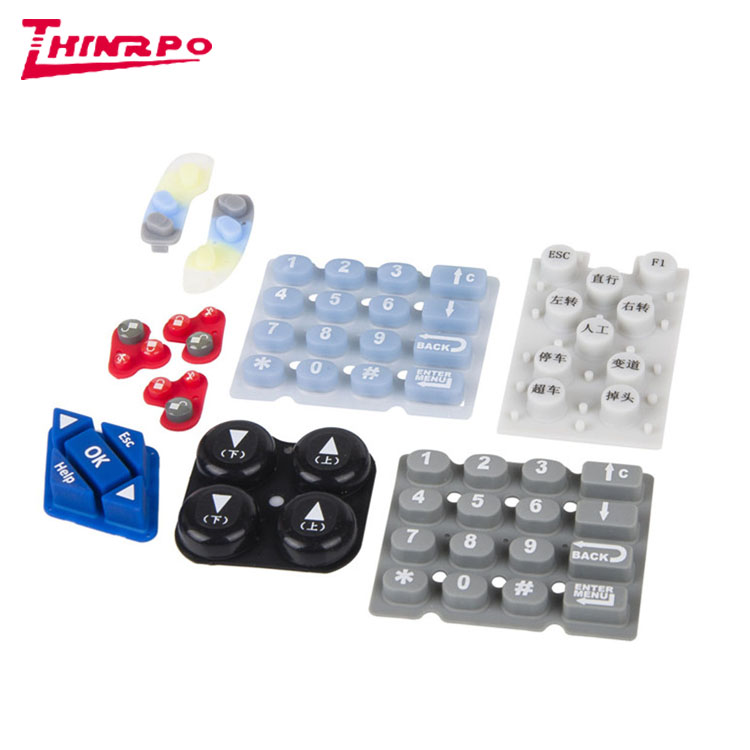
What We Can Do for Producing Custom Silicone Rubber Keypad/Button
1.Mold tool
Compression Mold tool
Screen Printing Tool
Laser Etching Machine
Conductive Pill Tools
2. Process of Keypad/button lengens
Screen Printing
Laser Etching (LED Blacklight)
3.Process of protective keypad /button cover
Matte Smooth Coating
PU Coating
Epoxy Coating
Platic Button Cap (P+R)
Metal Button Cap (M+R)
4.Conductive ways of keypad/button
Black Carbon Pills
Conductive Ink Printing
Metal Domes
Goden Pills
